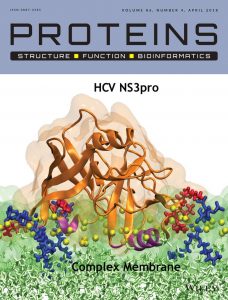 A researcher has retracted two 2014 papers, after discovering they had not gone through the proper approval process before being submitted.
A researcher has retracted two 2014 papers, after discovering they had not gone through the proper approval process before being submitted.
The papers were part of a collaboration funded by the U.S. National Institutes of Health, which focused on solving protein structures. Adam Godzik, the senior author, told Retraction Watch that all papers had to be approved by a special committee before being submitted to a journal. Given the scale of the collaboration, the committee for the Joint Center for Structural Genomics (JCSG) would assess whether researchers who had made a previous contribution to the work should be added as authors.
Proteins: Structure, Function, and Bioinformatics retracted both papers after Godzik informed the editor in August 2014 that neither article had undergone the required review before being submitted to the journal. Although Wiley agreed to the retractions in an email to Godzik in September 2014, the papers were only pulled in January—more than three years later. Continue reading Author: “The retractions were about bureaucracy, not science”
